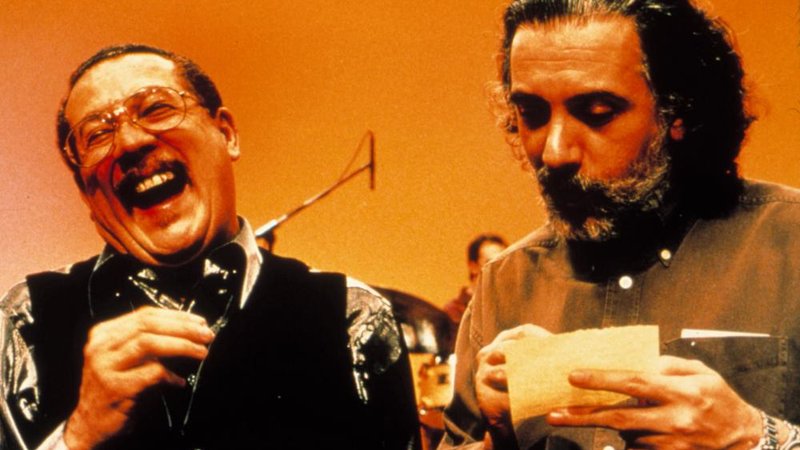
Screened as part of NZIFF 2001
Calle 54 2000
Spanish writer-director Fernando Trueba serves up the real deal in Calle 54, a wondrous performance-documentary that captures not only the fire but also the profound intellect and sophistication of Latin jazz.
Trueba fell in love with the genre while working on a film with piano great Michel Camilo. He decided to make a movie that celebrated the intricate and beautiful music, inviting some of the greatest Latin jazz players to let it fly before his cameras in a New York recording studio. Trueba keeps his focus on the performances, briefly introducing each artist with voice-over narration and then providing an ideal forum for them to show their talents.
Every one of the dozen musical numbers is impressive, but some do stand out. Pianist Domínguez blends jazz and flamenco to spectacular result. The late Puente gives his final big-screen performance with a rousing session on timbales and vibraphone. Barbieri, the tenor saxophonist who began performing again in the late 90s after 14 years of self-imposed creative exile, proves that he has retained all the haunting, otherworldly skills he had when composing the soundtrack for Last Tango in Paris. And pianist Chucho Valdés blends Cuban, classical and jazz styles, displaying a miraculous virtuosity. All these musicians are showcased beautifully by cinematographer Jose Luis López-Linares, whose lens creates an ambience of dreamy elegance without ever encroaching on the intimacy of the performances.
Because a number of the musicians hail from Cuba, comparisons between Calle 54 and last year’s Buena Vista Social Club are inevitable. Wim Wenders’ film, and the Ry Cooder-produced album which inspired it, are indeed invaluable for having rescued so many talented elder Cuban musicians and singers from obscurity. But not even that Oscar-nominated movie can approach the raw musical and visual brilliance of Trueba’s film. — Darren D’Addario, Time Out NY, 19/10/00